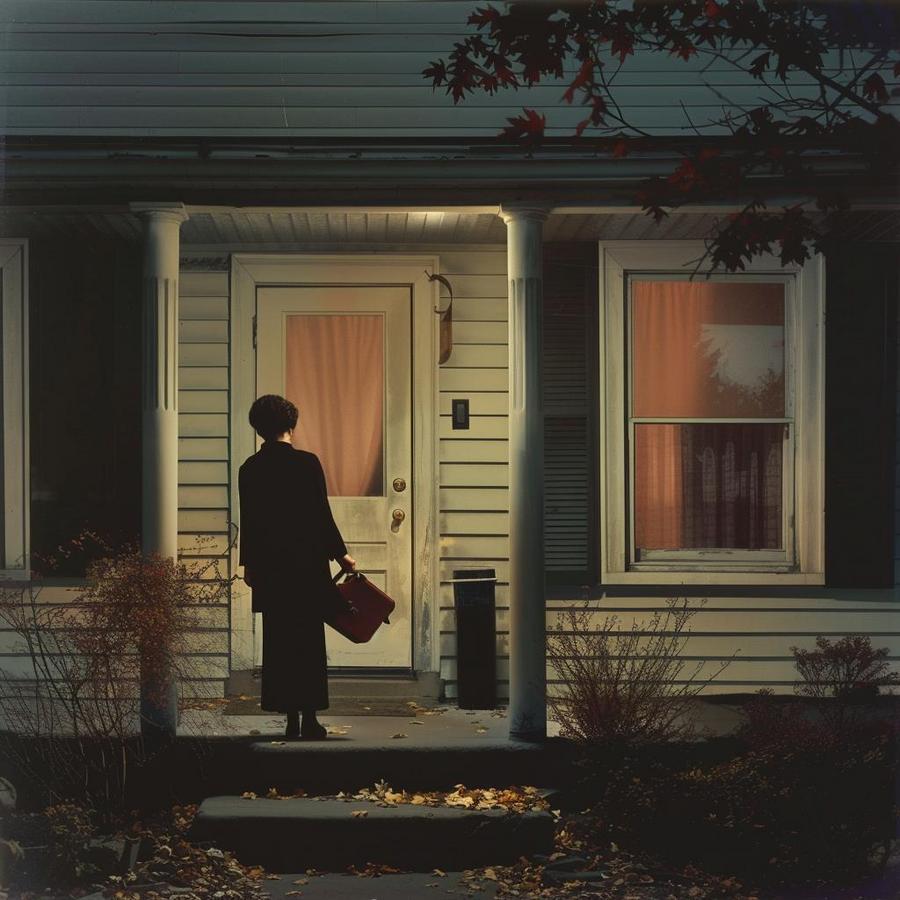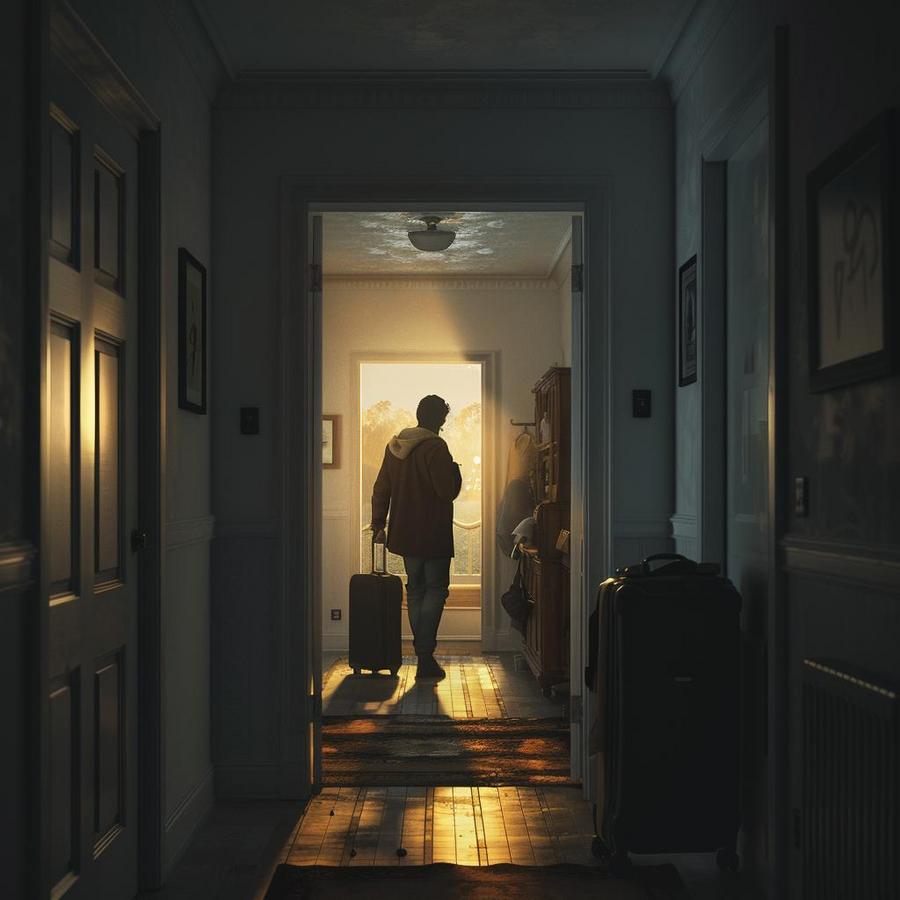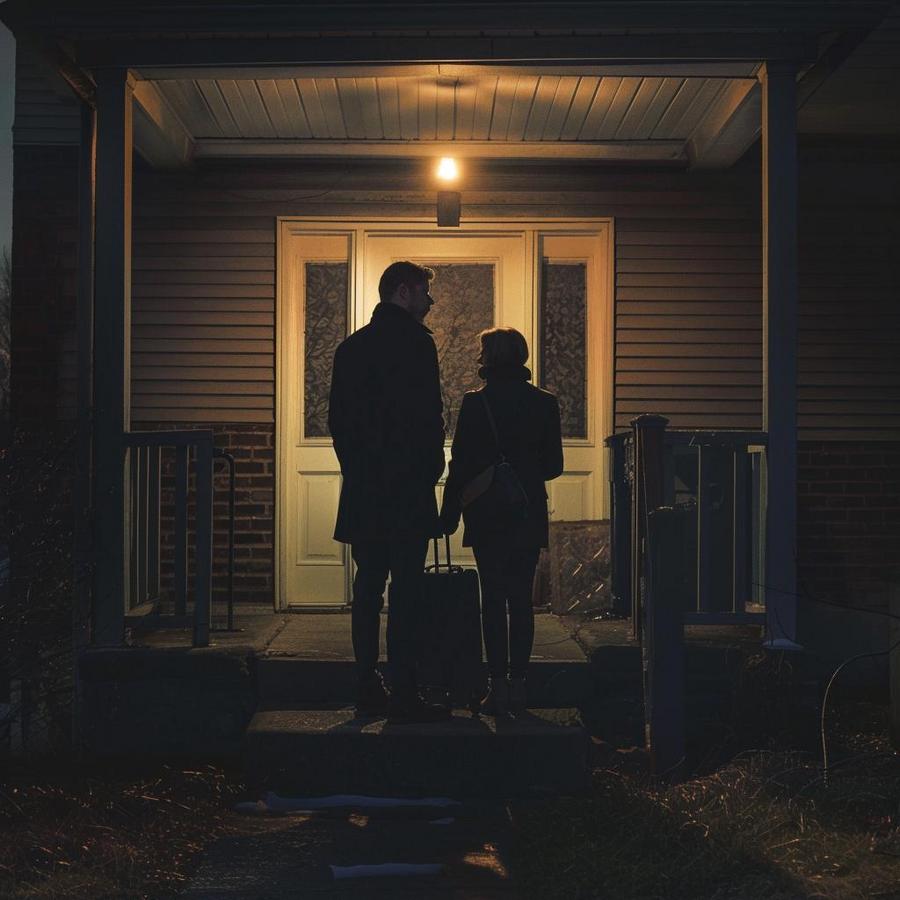Figuring out who has to leave the house in a divorce might be one of the hardest parts of splitting up. The emotional weight is real. If you’re in Richmond or elsewhere in Virginia, this decision isn’t just about where you’ll sleep. The policy impacts all aspects of life including financial status and family security and personal protection and child welfare stability. Let me walk you through what typically happens with the marital home, how having kids changes things, the money and legal stuff you’ll want to keep an eye on, and how to think about your next steps. The guide on how to sell your house fast for cash provides resources to help you sell quickly but you should know that you will receive less than the market price for your property.
TL;DR
- The moment you receive divorce papers does not require you to leave your home right away unless a judge orders it.
- The court has the authority to create temporary orders which determine who should stay in their current residence during the ongoing legal process.
- The main factors which determine custody decisions include child placement and financial capability and safety risks.
- Through discussions about their living situations children acquire better abilities to manage their emotions.
- You should never leave your home without getting legal advice first. Your absence will create problems in the future.
- If there’s violence, courts can kick someone out immediately.
- Think about your short-term residence along with your permanent address for when everything concludes.

What Happens to the Marital Home During Divorce Proceedings?
People find it surprising that Virginia law allows you to remain in your home after a divorce petition gets filed. No automatic eviction. Unless a judge specifically orders it (usually when someone’s safety is at stake), both of you can stay. The choice to stay in place brings benefits when you have children who require consistent care.
I’ve seen this play out dozens of times over the years. The couple I worked with lived together for six months while they finalized their divorce. The situation felt awkward to everyone involved. But their teenage daughter didn’t have to change schools mid-semester, and they saved thousands on temporary housing costs.
Temporary Orders and Occupancy
The process starts moving fast after you submit your paperwork. The court grants a temporary order which lets the judge decide which party should receive full possession of the house. The arrangement will stay in place until all matters reach their final resolution. The court will assess which parent has done most of the childcare duties and which parent needs the space more urgently along with other relevant factors.
The timeline usually works like this: You file for divorce. The court usually holds a hearing for temporary orders between 30 to 60 days after the initial filing. The judge will make their decision during the same day or within seven days. The new schedule will stay active until the final decree gets issued which might take several months to a year for complex cases.
Final Decisions on the Home
The final decision of judges appears to base their judgment on several essential elements:
- Which parent the kids will primarily live with
- Whether either spouse can actually swing the mortgage alone
- How Virginia’s property division rules apply to your situation
- Whether there’s been any violence or threats
- Each spouse’s financial contribution to the property
- The length of the marriage and each person’s age and health
The outcomes of these situations have shown me many different possibilities. Really depends on the specifics. Consulting a family lawyer before you make important decisions will help you avoid these issues. The most common mistake people make is thinking that the house belongs to the person whose name shows up on the deed. Virginia follows an equitable distribution system which means the court distributes assets based on fairness rather than equal shares. If you’re considering a change in ownership, check out this guide on how to transfer property ownership for more information about the process.
How Does Custody of Children Affect Who Stays in the Marital Home?
The court places children at the top of its priority list. Your child needs proper care so judges decide to continue the primary caregiver’s custody arrangement. Especially if that parent has been the one handling most of the day-to-day stuff—doctor appointments, school pickups, homework help.
My experience with over 1,000 real estate deals including multiple divorce cases shows courts focus on protecting children from major disruptions. The decision-making process includes multiple factors which determine school district boundaries and extended family access for childcare support and medical provider continuity and school district locations.
Negotiating Housing Rights for Children’s Benefit
Some couples work this out themselves, which honestly tends to work better for everyone. The kids should complete their school year so Mom can stay until June. The father will keep the house but agrees to sell it when the youngest child reaches middle school age in two years. Less fighting usually means happier kids.
Here’s what I’ve seen work well:
- Create a detailed parenting plan that includes housing transitions
- Consider “nesting” where kids stay put and parents rotate in and out
- Build in flexibility for major life events like graduations or college decisions
- Put agreements in writing, even informal ones between yourselves
The plan to sell requires some people to look at quick home selling methods for fast deals. We operate as cash buyers who can complete purchases within seven days which benefits individuals who need to split their assets quickly.
Financial and Legal Considerations When Leaving the Marital Home
Here’s where it gets tricky. Your departure from home does not eliminate your obligation to pay the mortgage for half of the costs. Your current financial situation may lose its strength when you start the property division process. Every time a conversation starts an argument makes me feel like I need to disappear.
The financial reality hits hard. Your budget now needs to stretch across two separate homes because you need to maintain two separate living areas. Your home tax bills and insurance premiums and utility bills continue to accumulate even when you are not present in the house.
Mortgage Payments and Property Rights
During the divorce, judges frequently split the mortgage responsibility somehow. The final settlement will determine who will make the payments. The mortgage company operates independently from your divorce proceedings so they will not alter their actions based on your divorce decree. The loan provider will view the person whose name appears on the loan as the responsible party.
Common scenarios I’ve encountered:
- Both parties continue paying 50/50 until the house sells
- The spouse who stays pays the mortgage but gets credit at settlement
- One spouse refinances to remove the other from the loan
- They agree to a quick sale to eliminate the joint debt
For more details on the selling process and how to handle your property, refer to this guide to transferring property ownership.
Worked Pricing Example
Real numbers from a recent Virginia divorce sale: Say your house could sell for $250,000 in perfect shape. The property requires roof replacement and kitchen remodeling which will cost around $20,000. Add $5,000 for regular closing costs. The investor aims to earn about $15,000 in profit. So they’d likely offer: $250,000 minus $20,000 minus $5,000 minus $15,000 = $210,000. You give up some money but avoid the trouble of fixing things and showing your home and paying for months of separation expenses.

Addressing Domestic Violence and Safety Concerns
The situation transforms all things. The court has the authority to remove anyone who threatens or becomes violent right away. Protective orders might also cover who gets the kids temporarily and who pays for what. Safety trumps everything else.
Virginia courts take this seriously. The court can issue emergency protective orders at any moment during the day. The initial order remains valid for 72 hours during which you must apply for a permanent protection order. Don’t wait. You should avoid negotiation. Your safety needs to be your number one priority.
Disclaimer: This information is for educational purposes only and is not legal or financial advice. Please consult a licensed professional for guidance on your situation.

Planning for Transitional and Future Housing
While everything’s up in the air, you’ve got options. Your sister’s guest room. Your lease agreement allows you to rent the property on a month-to-month basis. Your lease agreement lets you rent the property for short periods which includes times when you need to stay away from home. The decision requires you to balance privacy against expenses and home adjustments and your children’s ability to manage change.
I spent three months working with a client who relocated to a compact apartment located above his brother’s garage. The situation did not reach an optimal point but it provided him with time to plan his next move without depleting his financial resources on rent payments. The family chose to rent a townhouse within the same school district so their children could finish the school year with their classmates.
Strategies for Finding Affordable Housing Post-Divorce
- Determine your current financial capacity since you need to handle everything by yourself
- Call that realtor your coworker used—local knowledge helps
- Use Zillow and Craigslist every evening while setting up alerts to reduce your search time
- Maybe it’s time for that smaller place you never thought you’d consider
- Check if you qualify for any housing assistance (no shame in that)
- Consider roommate situations if the kids aren’t with you full-time
- Look into rent-to-own options if you need time to rebuild credit
Selling your house before foreclosure will help you get cash quickly so you can start fresh. Our company has assisted hundreds of divorcing couples in Virginia to prevent foreclosure through fast cash home purchases.
Seller Checklist Before Leaving the Marital Home
- Take photos of every room—you’ll want proof of how you left things
- Find that mortgage paperwork and the deed
- Make a list of all items that require transfer including the couch and TV and grandma’s china
- Set up mail forwarding service (PO box works if you have temporary addresses)
- Contact the power company to transfer your account
- Run everything by your lawyer before you sign anything
- Make copies of all important documents (tax returns, bank statements, insurance policies)
- Document the condition of major appliances and systems
- Change your passwords on all accounts
- Remove personal items you can’t replace (family photos, heirlooms)
FAQs About Who Leaves the House in a Divorce
Can both spouses stay in the house until the divorce is final?
Technically, yes—if the court doesn’t say otherwise. I know couples who’ve done it to save money or keep things normal for the kids. The situation felt awkward to everyone involved. But sometimes it works. Set clear boundaries. The basement belongs to one person while the other person keeps the rest of the house. Create a schedule for common areas. The process is challenging yet I have witnessed it save families over $20,000 in temporary housing expenses.
Does leaving the house mean I lose my share?
The property will remain in your name on the deed together with your financial input and the applicable Virginia state laws. The decision to leave might affect custody negotiations and reduce your ability to negotiate child custody arrangements. It’s complicated. Courts look at why you left. The situation involves safety issues which are completely different from leaving because of anger. This guide provides vital knowledge for Virginia property owners who want to move their real estate assets to new owners.
Can we sell the house before the divorce is final?
The answer is yes if both of you agree on it or if a judge makes that decision. The money stays in escrow until the distribution process begins. Some people choose to sell their house quickly just to get it over with. We have completed transactions in under seven days when both parties show strong motivation to close the deal. The agreement or court order will determine how the proceeds get divided.
What if my spouse refuses to move out despite violence?
Call 911. Then call your lawyer. The emergency protective order allows for immediate removal of the person. The situation requires immediate action. Virginia courts remain active throughout the entire day and night. The police will serve it and remove the person immediately. Your safety and your children’s safety come before any property concerns.
How do I protect my credit if my name is on the mortgage?
Continue your payments even when you have relocated to your mother’s basement. Your credit score will drop if you miss a payment regardless of your current residence. Your credit score will get damaged if you miss payments according to the established system. The system operates in this way. Set up automatic payments if you can. Track each payment you make. Protecting your credit score now will protect you from long-term financial problems which may result in reimbursement at a later date.
Look, divorce is hard enough without wondering where you’ll wake up tomorrow. Knowing what Virginia law says—and what judges typically do—at least gives you something solid to work with while everything else feels uncertain. The method demands you to handle every single day independently. Get good legal advice. The difficult phase will end to bring forth a fresh beginning.





